[/db_pb_fullwidth_slider]
While You Were Disinfecting:
Unsettling Changes to New York’s Home Care Programs
New York has been at the epicenter of the pandemic, and we imagine that most readers have been impressed with Governor Andrew Cuomo’s leadership during the crisis. So have we.
Readers however should be aware of some very unsettling changes to New York’s Medicaid-funded home care programs that were passed with little attention as part of the recently concluded State Budget process. These changes will make access to Medicaid-funded home care more difficult for many of our elderly and non-elderly clients living with disabilities in the community.
It now seems like ages ago, but several months back the Governor reconvened the Medicaid Redesign Team (now known as Medicaid Redesign Team II or “MRT II”) to identify cost savings within New York’s Medicaid program. Among other issues, the task force considered changes to the rules governing financial eligibility for home care services, limits on how married couples access home care programs, and restrictions on the number of hours available to individuals needing services. Some readers may have seen the piece in the Albany Times Union raising concerns about the proposed cuts (As State Eyes Deficit, New York’s Popular Home Care Program Fears Cuts, Albany Times Union, February 2, 2020). The composition of the MRT II has also been criticized for having inadequate participation from medical providers and consumers of home care services. Despite these concerns, critics had little leverage to challenge objectionable proposals given the current environment and the public’s favorable opinion of the Governor.
Below we summarize a few of the changes that we expect will have the most significant impact on our readers. We know it can be hard to focus on a policy issue like this when so many of us are riveted by the news and concerned for the health and safety of our friends and family. But this crisis will pass, and when it does, many who need care at home will be navigating a substantially different and less generous landscape.
Look Backs and Transfer Penalties for Home Care
Many readers are familiar with the comprehensive 60-month audit that is required for individuals seeking Medicaid coverage for nursing facility care. Effective October 1, 2020, individuals who are applying for most Medicaid funded home care programs will be subject to audit for transfers made during a 30 month ‘look back’ period, and subject to penalty if they cannot corroborate those transfers or if the transfers do not fall into one of a handful of exceptions.
Transfers to First Party Supplemental Needs Trusts can still be made without penalty by applicants under the age of 65. For elderly clients, they may still be able to fund a pooled Supplemental Needs Trust, but there may now be a transfer penalty and a waiting period for coverage. Of special concern is the impact of this new rule on one of the most important uses for these “pooled” trusts – the ability to protect monthly income so the elderly home care recipient can continue to pay rent and other expenses allowing them to stay at home. We expect that clarification on this issue (and others) will be sought from both the Legislature when it is back in session and the New York State Department of Health.
Curtailing Consumer Directed Services
Limits will be placed on access to the “Consumer Directed Program.” This program allows individuals with disabilities (of any age) to retain and pay people of their choosing to provide care at the home, including family members (with some restrictions). The success of this program has been driven in part by the lack of availability of professional staff, especially in areas of the state where public transportation is unavailable and the reimbursement rates paid to agencies make it cost-ineffective to send staff into a home for a few hours of care each day.
Expect Delays and Uncertainty
Other changes involve the assessment process (which will no longer allow for a family physician to corroborate the level of need) and a statewide limit on the number of ‘fiscal intermediaries’ that can administer these home care programs. Advocates are still digesting the language of the legislation, but the net effect of these changes is likely to be longer processing time for applications and recertifications, more fair hearings and appeals to challenge cuts in services, and greater out of pocket costs to supplement a reduced level of care.
The Bright Side
Tara Pleat had a bird’s eye view of the process. As the Chair of the New York State Bar Association Elder and Special Needs Law Section, she was actively involved in reviewing legislative language, lobbying legislators and recommending changes that would minimize the adverse impact on some of our most vulnerable clients. Through the efforts of the Section and other advocates, a number of important protections were preserved, including:
* Continued availability of the maximum “spousal resource allowance” permitted under federal law. This is the amount of assets that one spouse can keep while an ill spouse receives home care,
* Protection of “spousal refusal,” which allows the well spouse to refuse to spend all of her income over a certain amount if retaining that income is necessary to pay the bills that support the couple at home, and
* Affirmative language in the legislation that requires the State of New York to actively adhere to the philosophy that if a person can live safely in the community, steps should be taken to ensure he or she can do so.
Taking Action
If you have a family member who is currently participating in the Consumer Directed Program or receiving services through one of New York’s Managed Long Term Care programs, these changes may make ‘recertification’ more complicated, and in some cases may significantly impact the level of care that will be available under the programs going forward.
If you have a parent or other family member who may need help at home in the near future, these changes may make the application and approval process much more difficult.
The first step in proactive planning involves an assessment of current and future needs and a comprehensive discussion of planning options. We would be happy to schedule a consultation to begin the process with you.
Other News Related to COVID-19 and Planning in General
Executive Order on Remote Notarization and Witnessing
On April 7, 2020, Governor Cuomo issued an Executive Order which provides flexibility for individuals wishing to execute estate planning documents in a safe and responsible way.
From now until May 7, 2020 (unless modified by a subsequent Executive Order) wills, lifetime trusts, health care proxies, gifts riders to the New York State Power of Attorney and other documents can be executed using video conferencing in real time.
While our preference is to see our clients in person after the COVID-19 crisis is over so that they can execute their planning documents under the formalities of existing law, we recognize may people feel vulnerable and anxious. They want the security of knowing that should they fall prey to this virus, their current wishes will be reflected in their planning documents and those wishes will be carried out. The Governor’s Order allows for this to happen remotely, from the safety of our respective homes or offices.
Note that for clients who do sign their documents remotely, we will ask them to return to our office after the New York on Pause restrictions are lifted and when we all feel comfortable getting back together. At that time, the clients will be asked to re-execute the documents following the standard formalities under current New York State law.
Mechanicville Area Community Service Center, Inc.
This week we focus on the Mechanicville Area Community Service Center, Inc. (MACSC). In 1983, MACSC opened its doors to the 6,000+ residents of Mechanicville and the surrounding communities. Today that legacy of neighbors helping neighbors continues through MACSC’s programs and services that reach across the lifespan.
During the COVID-19 crisis, MACSC has adapted. They are distributing food to those who are hungry, they are preparing Easter dinners for those in need, they are helping essential workers find appropriate child care options, they are offering domestic violence services and supports remotely, and they continue to deliver weekly food staples to local seniors. MACSC is a community staple, and continues to provide solid and reliable support during this most difficult time.
To learn more about MACSC and how you can help them now and in the future visit their website at www.mechanicvilleacsc.org






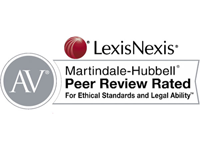
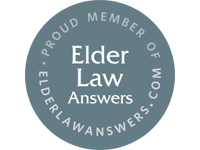

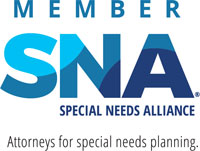



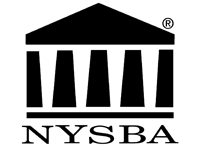

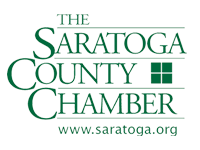
Recent Comments